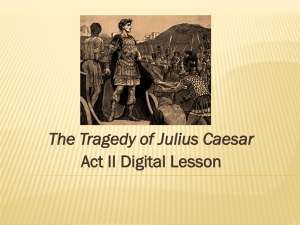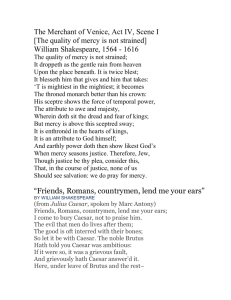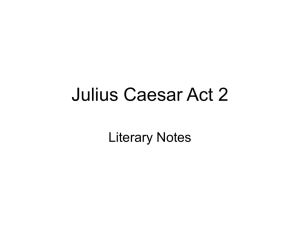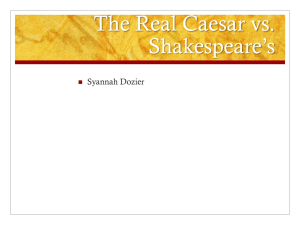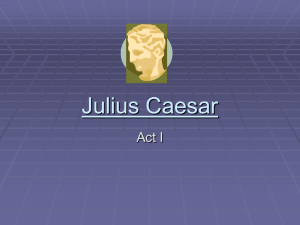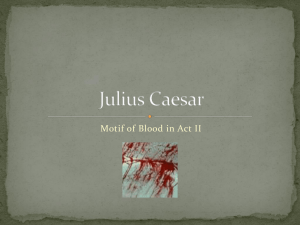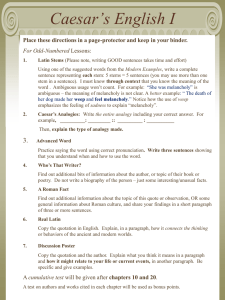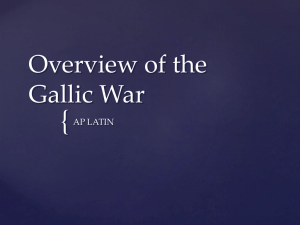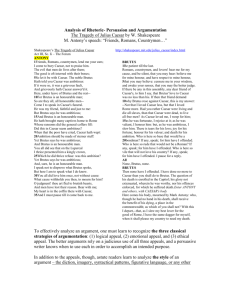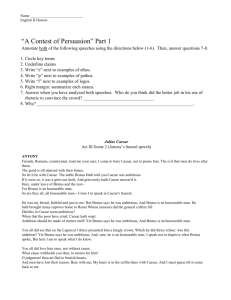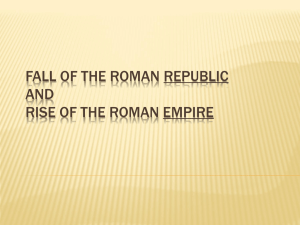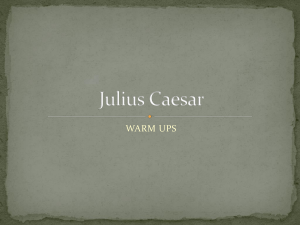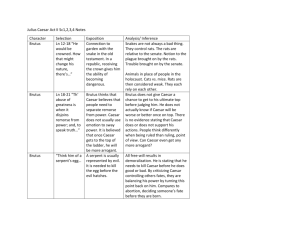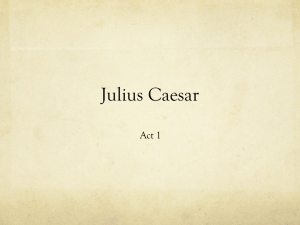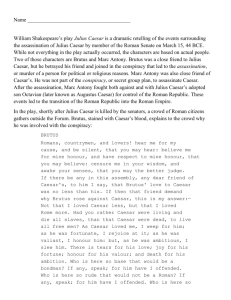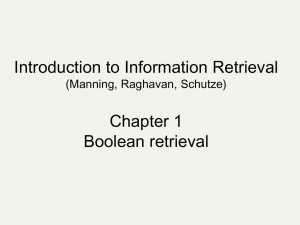Sample Rhetorical Analysis
advertisement
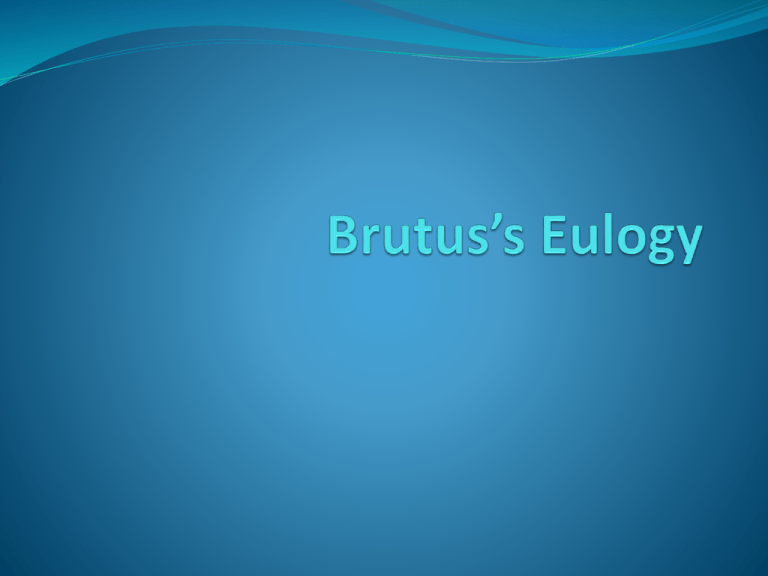
Background Julius Caesar emperor of Rome Corruption in Roman government Brutus friend to Caesar Betrayal and murder Speak to the public about Caesar’s death (Smith par 48) Claims and Support Claims Killing Caesar was for the best. The people can judge for themselves. Support Brutus loved Caesar Caesar was becoming corrupt references slaves Caesar was too ambitious Assumptions He has the credibility to speak out The people… Did not like Caesar. Trust Brutus Like Brutus Ethos “Believe me for mine honor, and have respect to mine honor, that you may believe. Censure me in your wisdom, and awake your senses, that you may the better judge. If there be any in this assembly, any dear friend of Caesar’s, to him I say that Brutus’ love to Caesar was no less than his. If then that friend demand, why Brutus rose against Caesar, this is my answer: Not that I loved Caesar less, but I loved Rome more” (III.ii lines 14-20). Asks the people to judge him and claims to have great love fore Caesar. Logos “As Caesar loved me I weep for him; as he was fortunate, I rejoice at it; as he was valiant, I honor him; but-as he was ambitious, I slew him. There is tears for his love; joy for his fortune; honor for his valor; and death for his ambition” (III.ii lines 2225). Brutus makes a point-by-point, logical argument that lays out the reasoning behind the murder. Pathos “Had you rather Caesar were living, and die all slaves, than that Caesar were dead, to live all freeman?” (III.ii lines 20-22). Appeals to the emotion of fear with drastic either/or reasoning. Mythos “Romans, countrymen, and lovers” (III.ii line 13) Creates a sense of community and patriotism.



